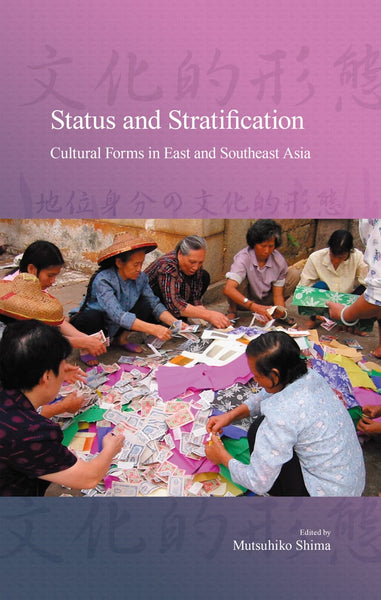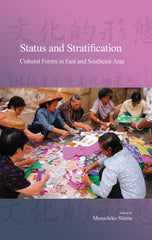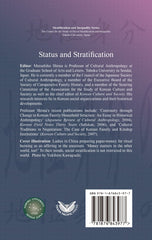Status and Stratification
Many In Stock
Exploring the myriad ways that status and stratification manifest in different cultural contexts, this collection presents in-depth studies of a variety of cultural forms in Asia. The first of the book's three parts focuses upon status concepts among the Japanese, providing case studies that examine the special professional status of doctors in feudal Japan, the offspring of fugitive warrior clans in agrarian communities today (ten centuries later), and the personal accounts of celebrity sports figures reflecting upon how they are regarded by their fans. The second part of the book shifts the focus to East Asia - presenting cases of late imperial China, contemporary Taiwan, and Korea - to investigate how different kinship groups define status and stratification. The third section then turns to Southeast Asia - including Jakarta, Bali, and Hanoi - examining the cultural forms of status in local health care services, public security activities, and the interactions between laborers and their employers. All of these studies are based upon culturally sensitive qualitative fieldwork and thus offer a much deeper understanding of these phenomena than conventional quantitative stratification studies.
About Editors and Authors
SHIMA Mutsuhiko is a Japanese cultural anthropologist and Professor Emeritus at Tohoku University who specializes in Korean studies. He graduated from the University of Tokyo with a degree in cultural anthropology in 1969 and obtained a PhD from the University of Toronto in 1979. After working at Gifu University, Hiroshima University, the National Museum of Ethnology and Tohoku University, he became Professor in the Graduate School of Letters at Tohoku University in 1996. He retired in 2010 and became Professor Emeritus.


